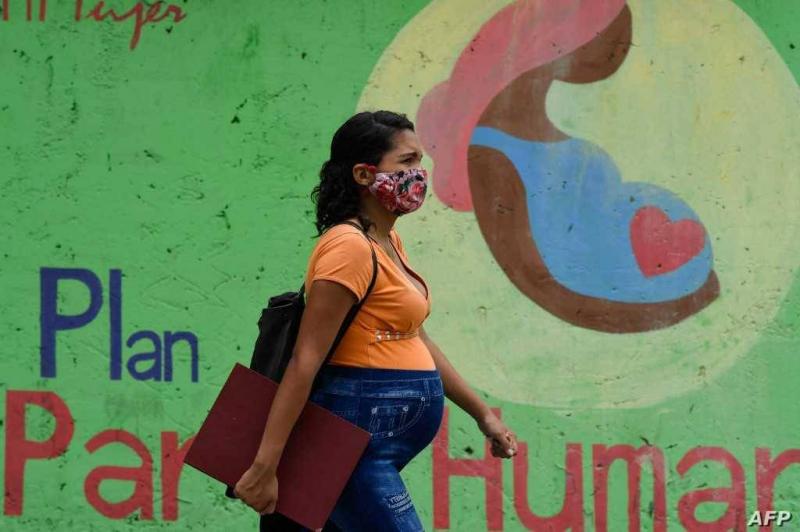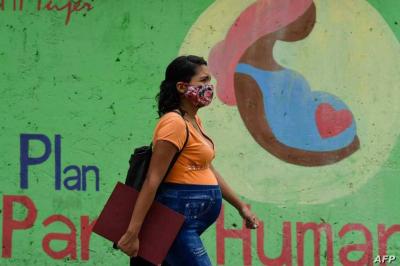Two new studies have shown that pregnant women who contract COVID-19 caused by the novel coronavirus are at risk of emergency complications and other issues during their pregnancies, which may endanger their fetuses, according to CNN. The first study indicated that pregnant women with the disease have a higher rate of emergency complications compared to those who tested positive without showing symptoms. This study was presented at the annual meeting of anesthesiology held over the weekend.
The study included 100 women infected with the coronavirus who gave birth between March and September of last year at a single hospital in Texas. It was noted that 58% of those women who experienced symptoms delivered in emergency rooms, indicating that these women were more susceptible to urgent complications posing risks to their babies. The study found that mothers with symptoms of the illness were more likely to experience emergency complications that jeopardized their child's well-being, with many infants born in a breech position requiring cesarean sections. Additionally, some women experienced decreased fetal movement, and some suffered from low amniotic fluid, which provides nutritional protection for the fetus.
The study also found that children born to mothers with clear symptoms of COVID-19 required more oxygen support and were more prone to entering intensive care units. Christine Lin, a medical student at the University of Texas Medical Branch in Galveston, who participated in the study, stated, "The coronavirus has severe effects on pregnant women, particularly those who exhibit symptoms." It was noted that doctors caring for symptomatic pregnant women were cautious due to the virus and often recommended cesarean delivery proactively.
Dr. Gil Moore, a reproductive immunologist who did not participate in the study but reviewed it, stated that the issues could also be related to chronic inflammation caused by COVID-19, emphasizing that such "inflammations can be extremely dangerous for both the mother and fetal development." He continued, "Chronic inflammation may mean a struggle for the survival of both the mother and the fetus, and during this struggle, there may be costs borne by the woman and her newborn. Thus, we need to do everything possible to prevent chronic inflammation."
In the second study published in the Journal of Maternal-Fetal & Neonatal Medicine, experts examined the records of over 2,400 women at a single hospital in Israel between March and September of last year. Dr. Elior Eliasi from Mayanei Hayeshua Medical Center and his colleagues found that symptomatic pregnant women faced greater health risks, with higher rates of gestational diabetes, lower white blood cell counts, severe bleeding during childbirth, and respiratory issues in their newborns.
The risks were approximately 20% higher for women with symptoms of COVID-19 and 14% higher for those infected without symptoms. Contrary to other research, this study did not find that symptomatic women were more likely to give birth prematurely, but it is viewed cautiously because it was conducted at a single hospital.
The two new studies add to a growing body of evidence that COVID-19, especially when accompanied by symptoms, poses a real threat to pregnant women, with increased risks of complications that these women might normally face during pregnancy. Dr. Denis Jamieson, chair of the department of obstetrics and gynecology at Emory University School of Medicine and a member of the American College of Obstetricians and Gynecologists, stressed the need for doctors to encourage pregnant women to get vaccinated against the coronavirus as soon as possible. He added, "I know that pregnant women may hesitate to take medications or receive vaccines during pregnancy and that they genuinely want to do everything they can to protect their children, making many sacrifices for it, but I believe this should be balanced with the risks of not getting vaccinated." He concluded that "it is important for everyone to be vaccinated, but especially for pregnant women to protect themselves and their children."




